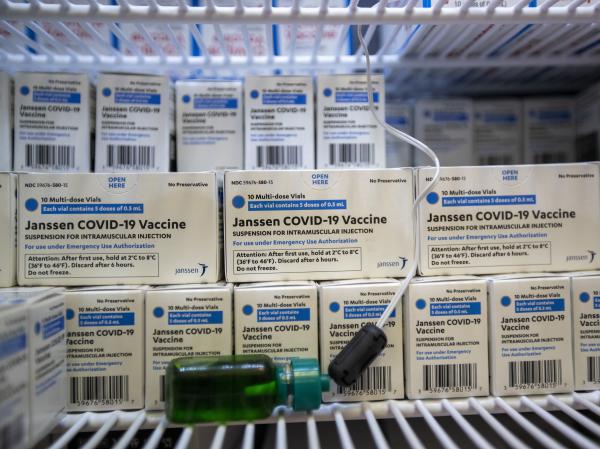The European Union’s drug regulator said Tuesday it had concluded there is a “possible link” between the Johnson & Johnson COVID-19 vaccine and several cases in the U.S. of a rare type of blood clot, but emphasized that the shot’s benefits “in preventing COVID-19 outweigh the risks of side effects.”
The assessment by the European Medicines Agency, or EMA, comes a week after the U.S. Centers for Disease Control and Prevention and the Food and Drug Administration announced a “pause” in the distribution of the Johnson & Johnson vaccine, developed by the company’s Janssen Pharmaceuticals unit, after reporting six cases of cerebral venous sinus thrombosis — a rare type of blood clot — seen in combination with low levels of blood platelets.
The EMA said it had reviewed eight cases of unusual blood clots in the U.S., one of which was fatal, occurring within three weeks of receiving the single-dose Johnson & Johnson vaccine. The agency determined a warning should be added to the vaccine’s product information.
“I have to stress again [the cases] are very rare and in the vast majority of cases these vaccines are going to prevent death and hospitalization from COVID-19,” EMA Executive Director Emer Cooke said in a briefing. “We have to balance the benefits of the vaccine with the risks.”
In a statement, the EMA said that although the chance of experiencing the side effect is “very low,” people “should still be aware of symptoms so they can get prompt medical treatment to help recovery and avoid complications.”
The pause in distribution in the U.S. due to a handful of cases has also complicated the rollout of the vaccine in Europe, which has been trying to ramp up its immunization campaign. The EU’s efforts have also been stymied by reports last month of similarly rare cases of unusual blood clots linked to the vaccine made by AstraZeneca, Europe’s primary supplier.
The EMA investigated the AstraZeneca cases and concluded that the vaccine is safe and effective and that its benefits far outweigh the potential risks.
The EU regulator said the eight U.S. cases it examined occurred in people under 60, mostly women. The small number of cases was among more than 7 million doses administered in the U.S. through April 13.
Peter Arlett, the head of data analytics at the EMA, said that the EU agency had also reviewed 287 occurrences with the AstraZeneca vaccine, 25 with the Pfizer-BioNTech vaccine and five with Moderna’s vaccine.




























